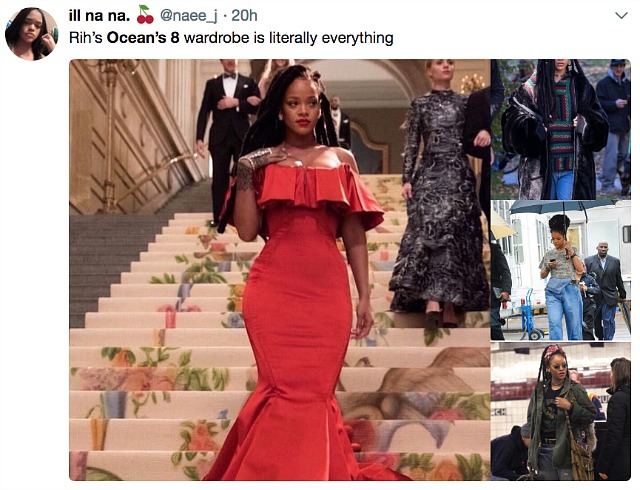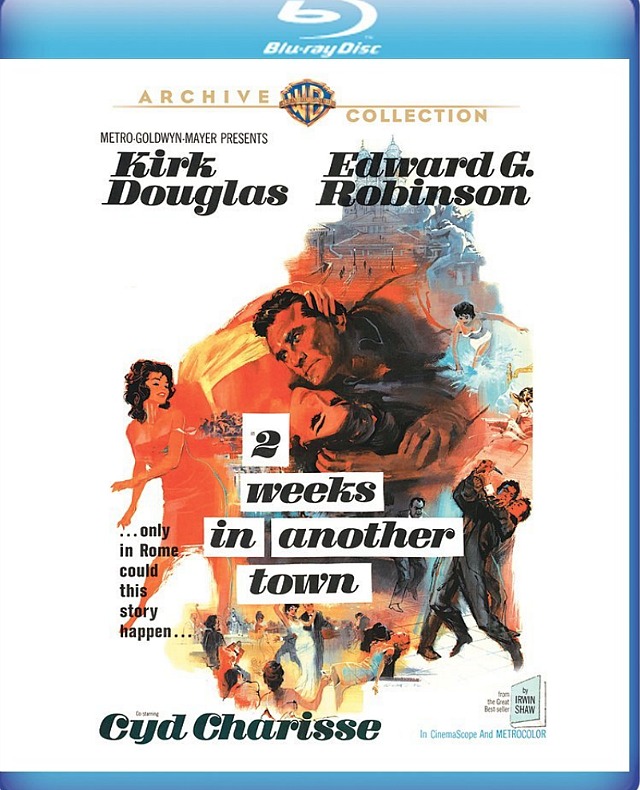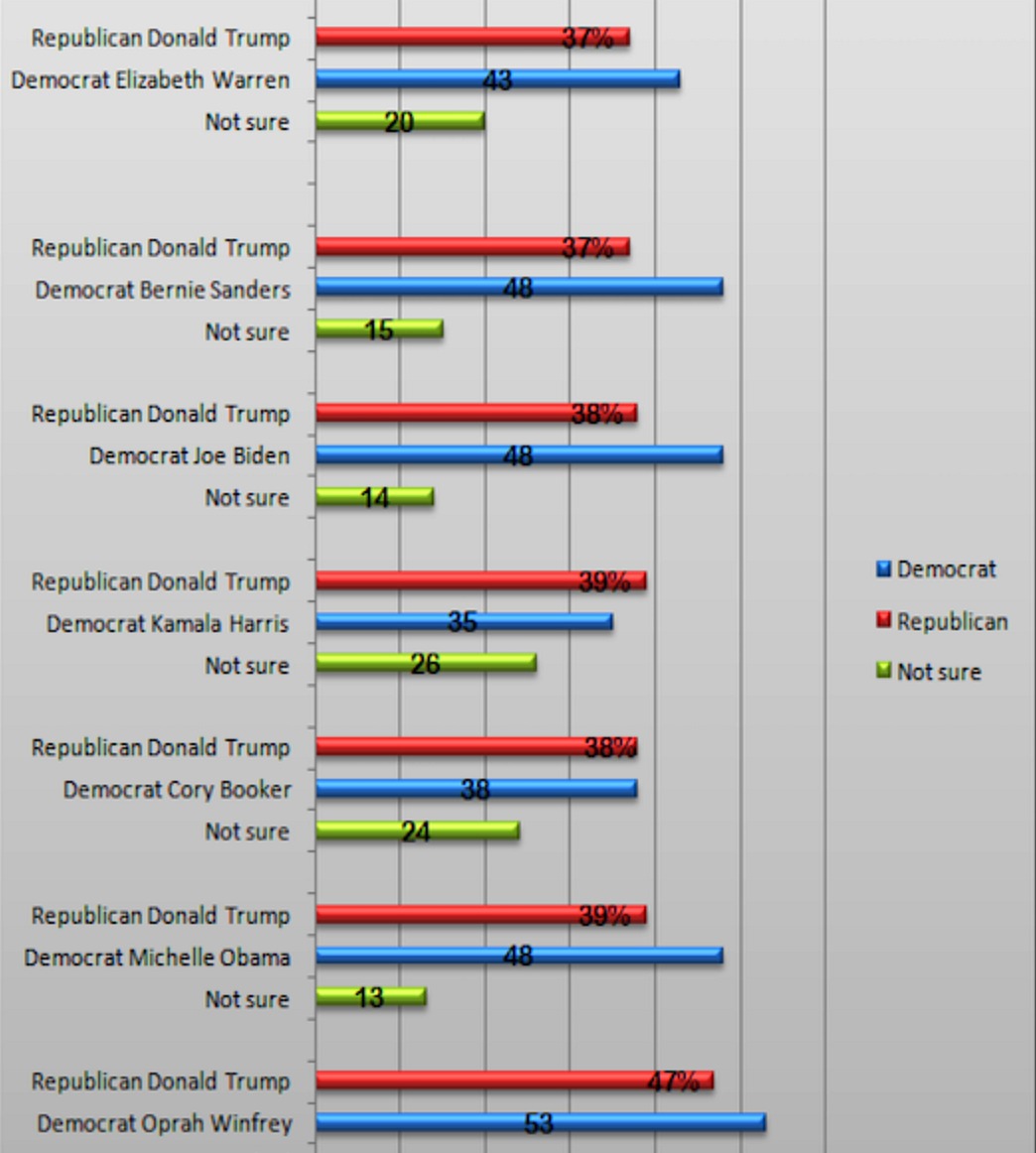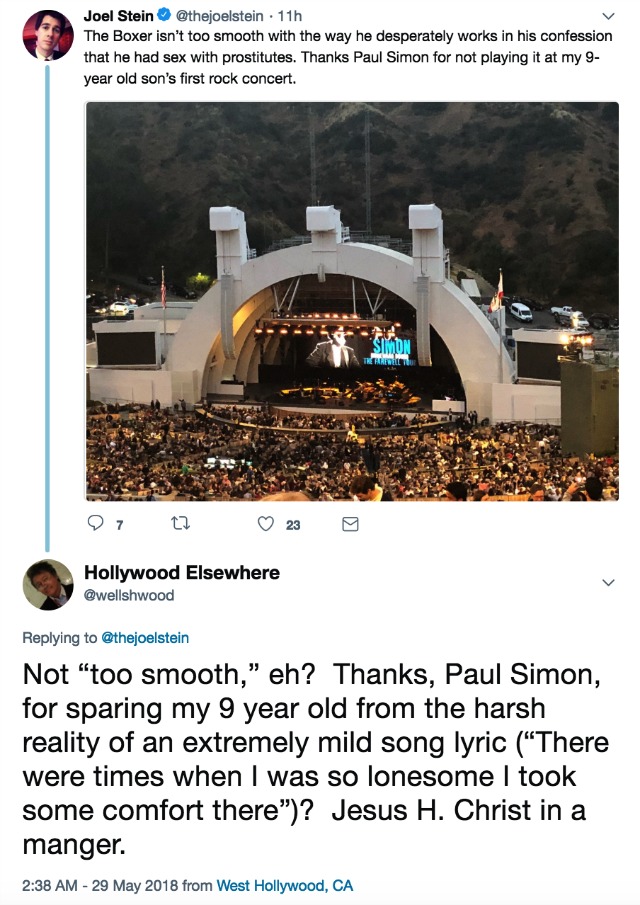If you ask me this is a classic New York City tabloid headline, right up there with STACKO! [after the jump], BRIDE OF JACKOSTEIN (a 1996 N.Y. Daily News headline), HEADLESS BODY IN TOPLESS BAR, SAM SLEEPS, etc. Kim Thong Un!

If you ask me this is a classic New York City tabloid headline, right up there with STACKO! [after the jump], BRIDE OF JACKOSTEIN (a 1996 N.Y. Daily News headline), HEADLESS BODY IN TOPLESS BAR, SAM SLEEPS, etc. Kim Thong Un!

Sanders to young journalist: “As a kid, and certainly as a parent, there is nothing that could be more terrifying for a kid to go to school and not feel safe. So I’m sorry that you feel that way. But I’ll be honest with you. This administration hasn’t the slightest interest in doing anything to make schools safer from random shooters. Not a damn thing except for helping schools to arm teachers. Arming and training teachers to shoot straight and true. That’s all we’re interested in doing. We’re not interested in restricting access to firearms, period. If some of your classmates get shot up, God forbid, all you’re going to get from us is ‘thoughts and prayers.'”

Topliners: 1. Damien Chazelle‘s First Man, a space drama about NASA’s Duke of Dullness, Neil Armstrong (Ryan Gosling, Claire Foy, Corey Stoll, Kyle Chandler, Jason Clarke); 2. Alfonso Cuaron‘s Roma (Marina de Tavira, Marco Graf, Yalitza Aparicio, Daniela Demesa, Enoc Leaño, Daniel Valtierra); 3. Adam McKay‘s Backseat (w. Christian Bale, Amy Adams, Steve Carell, Sam Rockwell); 4. Terrence Malick‘s Radegund (August Diehl, Valerie Pachner, Michael Nyqvist, Matthias Schoenaerts, Jürgen Prochnow, Bruno Ganz); 5. Bjorn Runge‘s The Wife (Glenn Close‘s Best Actress campaign + Jonathan Pryce, Christian Slater, Annie Starke. Max Irons).
6. Bradley Cooper‘s A Star Is Born, w/ Cooper, Lady Gaga, Sam Elliott, Andrew Dice Clay, and Dave Chappelle. 7. Felix von Groeningen‘s Beautiful Boy with Steve Carell and Timothy Chalamet; 8. Felicity Jones as Ruth Bader Ginsburg in On The Basis of Sex; 9. Saoirse Ronan in Mary, Queen of Scots (w/ Margot Robbie, David Tennant, Jack Lowden, Guy Pearce); 10. David Lowery‘s The Old Man and the Gun w/ Robert Redford, Casey Affleck, Sissy Spacek, Danny Glover, Tika Sumpter, Tom Waits, Elisabeth Moss.
11. Steve McQueen‘s Widows (Viola Davis, Cynthia Erivo, Andre Holland, Elizabeth Debicki, Michelle Rodriguez, Daniel Kaluuya, Liam Neeson, Colin Farrell); 12. Barry Jenkins‘ If Beale Street Could Talk (Kiki Layne, Stephan James, Teyonah Parris, Regina King, Colman Domingo, Brian Tyree Henry, Diego Luna, Dave Franco); 13. Bryan Singer‘s Bohemian Rhapsody (15-year period from the formation of Queen and lead singer Freddie Mercury up to their performance at Live Aid in 1985) w/ Rami Malek, Ben Hardy, Gwilym Lee, Joseph Mazzello, Allen Leech, Lucy Boynton. (20th Century Fox, 12.25.18); 14. Luca Guadagnino‘s Suspiria (Dakota Johnson, Chloë Grace Moretz, Tilda Swinton, Mia Goth); 15. Xavier Dolan‘s The Death and Life of John F. Donovan (Kit Harington, Natalie Portman, Jessica Chastain, Susan Sarandon, Kathy Bates).
16. Spike Lee‘s Black Klansman (John David Washington, Adam Driver, Laura Harrier, Topher Grace, Corey Hawkins — Focus Features); 17. Stefanio Solluima‘s Soldado (Benicio del Toro, Josh Brolin, Catherine Keener (Columbia, 6.29.18); 18. Asghar Farhadi‘s Todos lo saben (Spanish-language drama w/ Penelope Cruz, Javier Bardem, Barbara Lennie, Ricardo Darin, Inma Cuesta, Eduard Fernandez Javier Camara); 19. James Gray‘s Ad Astra, w/ Brad Pitt, Tommy Lee Jones, Ruth Negga, Donald Sutherland, Jamie Kennedy; 20. Benh Zeitlin‘s Wendy (was filming in March ’17, should be released by late ’18).
I wasn’t invited to last night’s elite-journo screening of Ocean’s 8 but I’ll survive. It doesn’t sound like my kind of heist film. Seemingly as much about fashion as larceny. “Typical clever heist stuff,” a friend remarks. “Very entertaining.” I’m sorry but Anne Hathaway speaking the phrase “we got the giggles so hard” fills me with cold-blooded dread. The giggles. The giggles. Lordy, the giggles.



In Donald Trump‘s apparent view, Roseanne Barr has been dealt with severely not just because she tweeted a racist comment about Valerie Jarrett but because, in the opinion of Disney/ABC management, she’s on the wrong side of the political divide. If Bob Iger and Channing Dungey were truly even-steven and fair-minded, he seems to imply, they would give Roseanne a pass the same way HBO gave Bill Maher a pass after he claimed that Trump was sired by an orangutan.
Actual Trump quote: “Gee, [Iger] never called President Donald J. Trump to apologize for the HORRIBLE statements made and said about me on ABC…maybe I just didn’t get the call?” One presumes that the term “HORRIBLE statements” refers to reporting that Trump has taken issue with.

Chris McQuarrie‘s Mission: Impossible — Fallout (Paramount, 7.27) was research-screened last night in Las Vegas. A movie hound loved it for the most part. His estimations of how long this or that scene lasts are to be taken with a grain of salt as he probably wasn’t using a stop-watch.
“The action is incredible,” he enthused. “The car/motorcycle chase through Paris lasts a good 20-plus minutes. The fight in the bathroom runs about 10 minutes. The helicopter chase at the end is a good 20 minutes. There are a lot of moving parts but it all moves so quickly and fluidly.
“There’s clearly a LOT of work yet to be done for a film that’s coming out in eight weeks. I’ll be excited to see it again. The music wasn’t finished so a majority of the fight scenes or chases weren’t scored — nothing but the sounds of roaring, screeching cars, and that was so amazing. I hope they keep it like that.
“And the cast — Tom Cruise, Rebecca Ferguson, Henry Cavill, Simon Pegg, Ving Rhames, Michelle Monaghan, Alec Baldwin, Sean Harris, Wes Bentley, Angela Bassett — is so perfect. Even if I had some qualms about where certain characters’ allegiance truly lies at the end, it really doesn’t matter a whole lot.
“I’d 100% see it in a theater if I were you. It’s gorgeous. It’s loud. It’s fun.
“Vanessa Kirby is only in a few scenes, but she was the standout for me. The woman just oozes sexuality.
“Tell your friends Chris McQuarrie and J.J. Abrams to trust the audience a little more and rely less on five-minute-long dialogue scenes of exposition that explain every part of every plan. Then again better to make things crystal clear than to obscure the narrative, I suppose.”
Response to Vegas guy assessment from back east: “This is very good news. Action movies have become so dumbed-down and compromised that you can’t help but appreciate the choice cinematic thrills of these Mission: Impossible movies.
“Tom Cruise — I don’t know how this guy does it. Edge of Tomorrow, Jack Reacher, American Made. He’s a great action star. I just wish he could pick more dramatic roles because he really is just a great actor.”
I posted this Moneyball clip a little more than eight months ago, but I’m still shattered by what we didn’t know back in 2011, which was that smart, adult, middle-class, award-calibre theatrical flicks about straight white guys would become politically unpopular within a few years time. Even award season has become a dicey launch pad since movies about SWGs have become more or less verboten. They’ve certainly lost their foothold.
And none of us realized seven years ago that Chris Pratt, who would become a big star three years later in 2014’s Guardians of the Galaxy, would never have as glorious a big-screen moment as this again.
This was Pratt’s peak — it never got any better for the guy in a God-smiling-down, spiritual-uplift sense. And nobody knew back then (and how could they?) that once Pratt became a quarter-of-an-inch-deep, big-money player in meaningless megaplex movies — i.e., the white Dwayne Johnson — that he’d be all but finished in terms of being cast in movies with scenes of this particular type — emotional guy-movie scenes that just reach out and get you. Do you feel this scene? Do you see the look on Jonah Hill‘s face as the ball sails into the right-field stands? Definitely something tingly going on.
Pratt is toast now — his attitude is too king-shit to do anything but make more Marvel flicks, dumb dinosaur movies and glitzy, worthless high-tech extravaganzas like Passengers and so on. He’ll never play a guy like Scott Hatteberg again.
There isn’t much difference between Kirk Douglas and Cyd Charisse‘s mad sports-car drive in Two Weeks In Another Town (’62) and Lana Turner‘s mad, careening drive through the Hollywood hills in The Bad and the Beautiful (’52). The bond, of course, is that both sequences were directed by Vincente Minnelli, and both films starred Kirk Douglas as a jaded film-industry pro with an occasional tendency to suffer over-the-top emotional fits.
A Warner Archives Bluray of Two Weeks in Another Town pops on 6.19. It’s not a great film — it’s actually strained and overwrought — but it captures Rome at an interesting period, the end of the heyday of a city known in the ’50s and early ’60s as the capital of La Dolce Vita — swinging, top-down, martini-inhaling, Ray-ban hedonism.

An all-but-meaningless Zogby poll posted last Friday indicates that Oprah Winfrey, who declared last February that she “definitely” won’t be running against President Donald Trump in 2020, is more likely to defeat the current White House occupant than Michelle Obama, Joe Biden, Bernie Sanders or Elizabeth Warren.
Zogby says that 53% of likely voters would choose Winfrey with 47% supporting Trump. The concern is that Trump performs better against Winfrey than any of the other candidates. Something about Winfrey appears to agitate right-leaning, red-state voters. Margin-wise Michelle Obama does better against Trump, 48% vs. 39%. An Obama-Winfrey ticket (or vice versa) would be close to unbeatable, no?

In fact, Winfrey beats Trump among nearly every sub-demo, including younger voters (aged 18-24 years old — 65%), African Americans (90%), Hispanics (63%), Asians (80%) and women (50 %). Winfrey also leads among independents (55%) and voters with no college degree (51%). My sense is that Winfrey would make an ineffective president in some respects, and yet she’s brilliant and humane and obviously aggressive and well-organized. To get Trump out I would vote for her in a New York minute. What a shame that she’s…what, too flighty or indecisive to accept the power she apparently wields?
If Winfrey wanted to really seize the day she might be able to save the U.S. of A. from a sociopathic bully-boy crime boss as president. Alas, she apparently hasn’t the inclination or the character to make a go of it.
On the other hand Trump beats Winfrey among among Walmart shoppers (54% to Winfrey’s 46%) and NASCAR fans (59% to Winfrey’s 41%)
Michelle Obama, Biden and Sanders all command support of 48% of likely voters vs. Trump’s 38% to 39%. Senators Cory Booker and Kamala Harris are currently polling Trump in the Zogby poll.
881 likely U.S. voters were polled between 5.10 and 5.12. The margin of error is plus or minus 3.2 points.
Obviously 19 year-old Bechet Dumaine Allen, daughter of Woody Allen and Soon-Yi Previn, knows nothing about the matter of her father’s innocence or guilt in the matter of Dylan Farrow. She’s just standing by her “supportive and loving” dad as any loyal daughter would. But this morning’s Facebook statement, which supports a recently posted pro-Woody essay by her uncle Moses, has probably put her in the line of fire. Bechet has almost certainly earned Dylan’s enmity, mostly likely irked Greta Gerwig and Timothee Chalamet, and may even be accused in certain circles of betraying the #MeToo movement. If Bechet had voiced a similar statement during “the terror,” she’d soon be riding in a horse-drawn cart with Georges Danton.

After attending last night’s Paul Simon concert at the Hollywood Bowl, journalist Joel Stein tweeted that “The Boxer“, a 1969 tune from Bridge Over Troubled Water, presented a problem for the delicate ears of his nine-year-old son.
The song “isn’t too smooth with the way [Simon] desperately works in his confession that he had sex with prostitutes,” Stein tweeted. “Thanks, Paul Simon, for not playing it at my 9 year-old son’s first rock concert.” Perhaps Simon didn’t play “The Boxer” last night, but why wouldn’t he have? Simon did two or three nights ago [scroll to 11:30 mark on below video] and sang the lyric in question, “I do declare there were times when I was so lonesome I took some comfort there” — i.e., with “the whores on Seventh Avenue.”
Imagine a nine-year-old boy being raised by a dad who wants to protect him from a mild little lyric like Simon’s. I was leafing through nudie mags when I was eight and feasting my eyes on bodacious ta-ta’s. Stein’s son is in for a rough patch when he hits his teen years. His dad is a pearl-clutcher.
